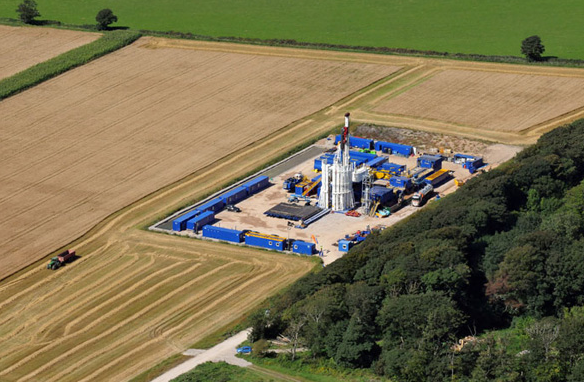
Construction work has started at a controversial fracking site in Lancashire, energy company Cuadrilla has confirmed.
Permission for the scheme to drill up to four wells and frack for shale gas at Preston New Road, Fylde, was turned down by Lancashire County Council, but given the go-ahead last October by Communities Secretary Sajid Javid following an appeal.
The move by the Government was welcomed by business groups but provoked an angry reaction from environmentalists and local campaigners, who said it went against the wishes of residents and threatened the environment.
Initial surface construction works on the shale gas exploration site, near Little Plumpton, have now begun, after the council discharged the planning conditions and approved Cuadrilla’s associated management plans for the works, the company said.
It will take approximately three months to prepare the surface site, which is roughly the size of a rugby pitch, before drilling can begin.
Work includes building a new entrance, access road and well pad and clearing topsoil to put in a protective membrane which will create an impermeable barrier underneath the site, Cuadrilla said.
Chief executive Francis Egan said: “The start of work on our new shale gas exploration site is an important milestone for Lancashire, bringing new economic growth and jobs for the county.
“The work will be undertaken to the highest safety and environmental standards.
“The operations are also underpinned by comprehensive site monitoring programmes undertaken separately by ourselves, regulators and independent academics.
“Twelve months from now we hope this work will prove the economic viability of this indigenous shale gas resource in Lancashire which will help improve energy security for the nation.”
When David Cameron was prime minister, he said the Government was going “all out for shale” to boost the economy, jobs and energy security – and soon after Theresa May took over as PM, she launched a consultation which could see homeowners receive individual payments for fracking wells drilled nearby.
But the process – in which liquid is pumped deep underground at high pressure to fracture shale rock and release gas – remains highly controversial, with many protesters turning out for the public inquiry into two schemes in Lancashire.
Opponents of fracking fear it can cause earthquakes, pollute water, lead to damaging development in the countryside and hit house prices, and is not compatible with targets to cut the use of fossil fuels to tackle climate change.